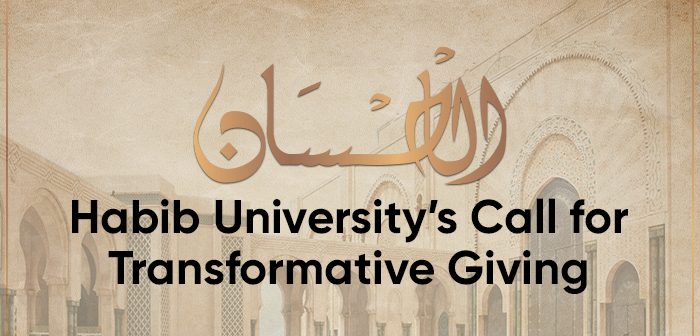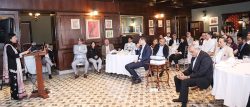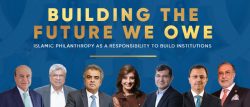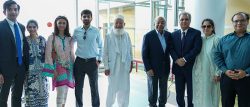The Al-Ihsan campaign by Habib University, titled Strengthening Institutions: Through Reshaping Philanthropy, is a transformative initiative that seeks to redefine Islamic philanthropy by aligning it with sustainable and impactful goals. Rooted in the principles of Ihsan, excellence, compassion, and doing good, the campaign channels the immense potential of Zakat toward building enduring institutions that foster societal progress.
Centuries ago, Islamic philanthropy ignited an intellectual renaissance. Institutions like Bait al-Hikmah in Baghdad and Az-Zitouna University in Tunis established long before Europe’s first universities, gave rise to thinkers who redefined human knowledge. Al-Khwarizmi, the father of algebra, and Ibn Khaldun, the founder of sociology and economics, were the products of these visionary learning centers.
Fast forward to today, and much of Zakat—the $1 trillion annual philanthropic mobilization of the Muslim world—primarily funds short-term relief efforts, such as addressing hunger and displacement. While these efforts are essential, they rarely result in the kind of enduring institutions that can drive societal transformation. This gap is at the heart of Habib University’s Al-Ihsan Campaign, an initiative that seeks to realign Islamic philanthropy with its historical mission: building sustainable, transformative institutions.
Recognized as the best university in Pakistan, Habib University exemplifies how institutions can utilize Zakat for long-term societal impact. Professor Daron Acemoglu, the 2024 Nobel Laureate in Economics, has underscored the significance of inclusive institutions as the cornerstone of societal progress. This aligns seamlessly with Habib University’s vision. Since its founding in 2014, the university has awarded over $30 million in financial aid and undergraduate scholarships, with $9 million coming directly from Zakat. This generosity ensures that four out of every five students receive support, enabling them to pursue world-class education while transforming their communities.
The Al-Ihsan Campaign exemplifies how Zakat can be leveraged not just for immediate relief but for sustainable impact. It calls for redirecting even a fraction of Zakat to nurture enduring institutions like Habib University. With a proven model already in action, this initiative offers a roadmap to reclaim the transformative potential of Islamic philanthropy.
The question is not whether the Muslim world has the resources to lead this change, but whether it has the vision once again to harness Zakat for education as a tool for enduring progress. As the campaign starts on January 25, 2025, we invite our audiences to stay connected and follow the updates and incoming events.




